The decade of action, change – and Covid-19
The year 2020 has seen global changes at an unprecedented level. Covid-19 quickly took us from local outbreak to global shutdown, with various secondary impacts on our economy and on life as we know it. We also find ourselves in important global conversations around human rights and equality, we see a worrying acceleration of climate impacts, and we entered the “Decade of Action” of the United Nations 2030 agenda.
How is this situation going to affect our future?
In times of crisis, we see a drive for accelerated innovation. Many of today’s big players have emerged during the 2008 financial crisis. Innovations are adopted faster than usual, as people and companies put aside concerns and focus on immediate mitigation.
The different stages of Covid-19 response
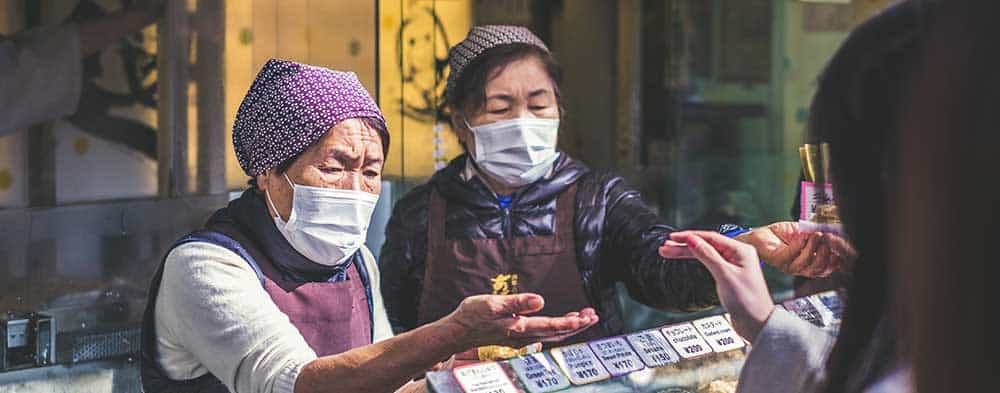
The medical, psychological, and economic impacts of Covid-19 have rapidly changed our need for products and services. Uncertainty affects demand, and the danger of disease spread makes certain ways of engagement, delivery channels and manufacturing practices unavailable or risky. Urgent measures for disease prevention, treatment and information management need to be put in place. This is affecting technology innovation and adoption in unique ways.
In general, we can divide the global Covid-19 response in a few different stages, from short-term to long-term impact:

Direct crisis response
Most recent technological innovations focused on immediate support systems: disease prevention, recognition, and treatment, as well as short-term business continuity and financial aid.

Changes in demand & short-term adoption
The heavy disruption of known ways for consumption, education and work brings more attention to alternative solutions, even if those solutions would be regarded with hesitation outside the crisis.
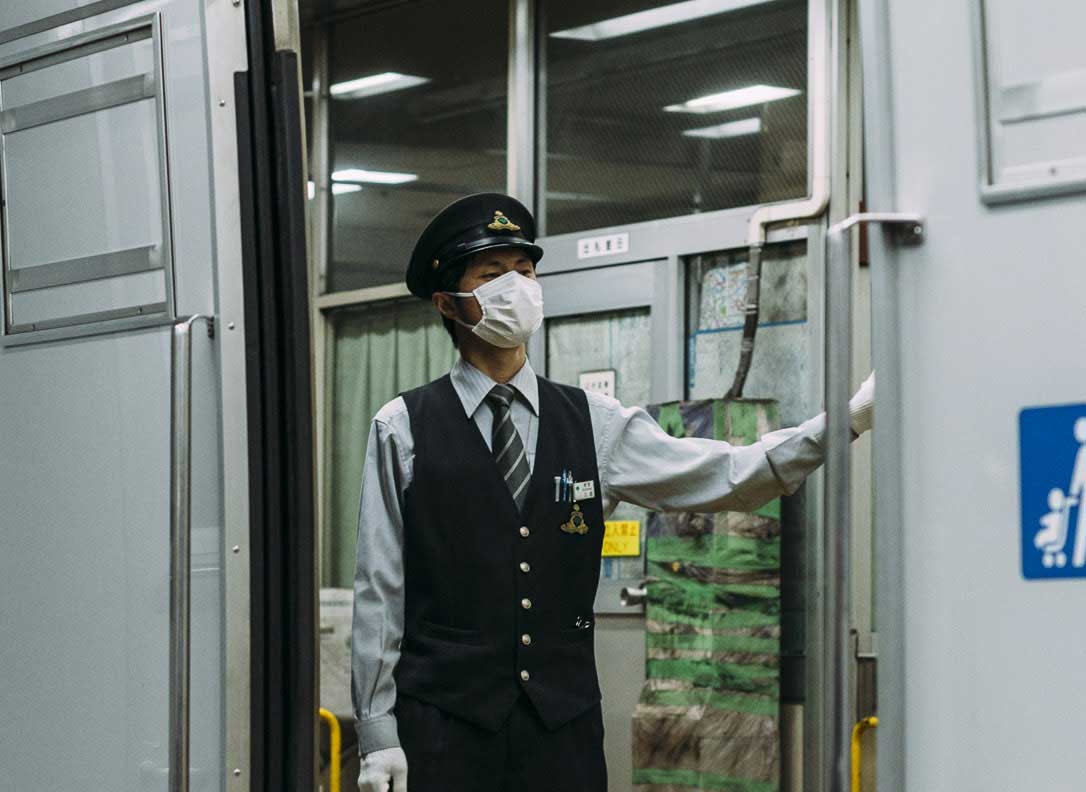
System optimization for trust, traceability, and predictability
A crisis creates an environment of uncertainty. To make informed decisions in uncertain times, reliable information, trusted connections and at least some degree of predictability are needed.
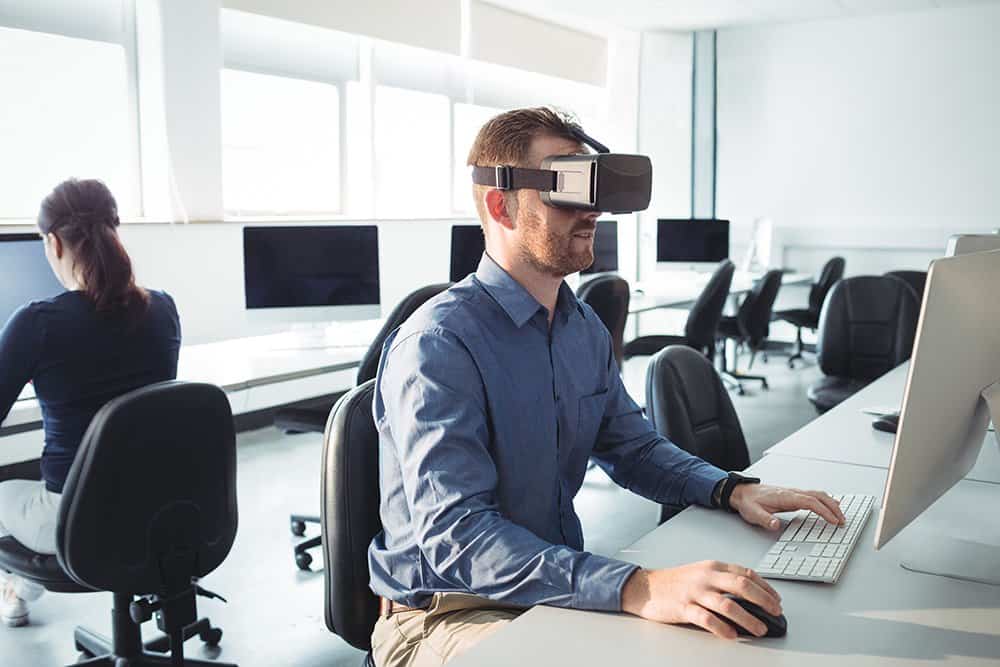
Long-term behavioral change
Forced shifts in short-term behavior lead to continued behavior change. These changes likely impact the future of how we seek leisure and entertainment, and how we work, consume, and learn.
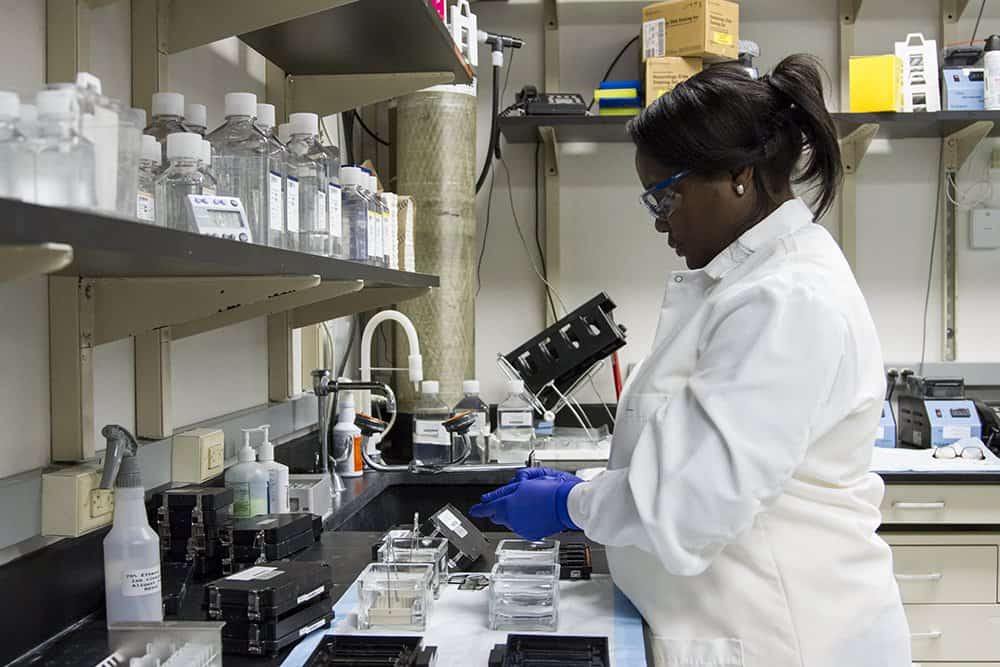
Future prevention
A key aspect of learning from the crisis is to implement preventive mechanisms to increase preparedness and to lower the future impact of similar situations.
How does Covid-19 affect technology innovation?
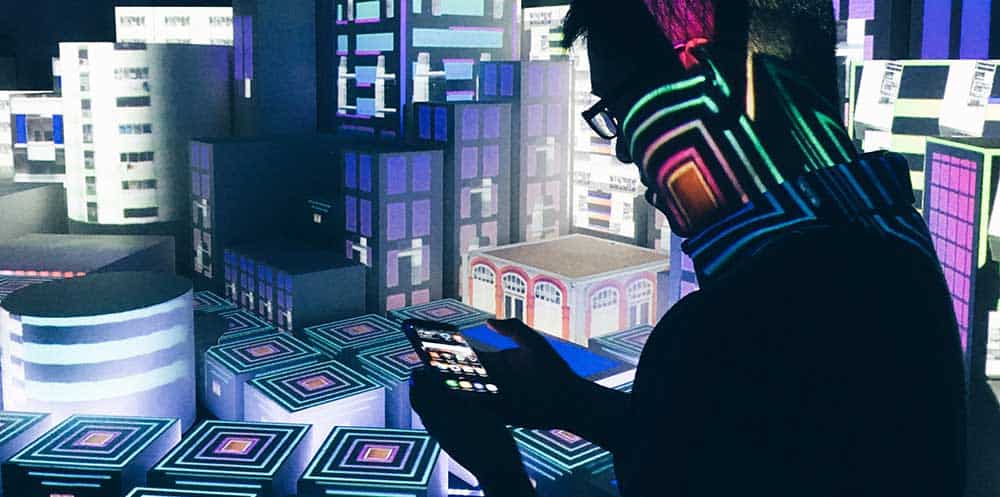
Uncertain environments speed up the innovation and adoption of new technologies and business models. But the economic impact of Covid-19 also takes its toll on various industries, leading to a sharp focus of on solving the most pressing current problems of entire industries and sectors – and society.
We see drones and robotics used for safe deliveries and preventive measures. Masks and otherwise inaccessible spare parts are supplied through 3D printing. IOT and blockchain are used to accurately trace supply chains and detect vulnerabilities, while Artificial Intelligence supports the processes of medical research, symptom analysis and vaccine development. In an increasingly digital world, we increasingly depend on credible online data, social networks, and virtual connections and experiences, and see the lines between home entertainment, work and education blur.
Key emerging themes
Our report highlights three key emerging themes that serve as common denominators in Covid-19 related innovation and response across different sectors.

Controlled Accessibility
Controlled accessibility describes the paradox of unparalleled access to data insights while safeguarding data privacy and ownership, of sharing information while keeping intellectual property rights intact. The Covid-19 crisis has brought an unforeseen urgency to share reliable information and to gather data insights for informed decision making. In this accelerated timeline, is the safeguarding of personal data and data ownership still a priority?
Predicting the Unpredictable
In a time where nothing is like it was before, we usually embrace everything that brings a little more certainly. The irony is that our predictive models are precisely breaking down when they are most needed. At the same time, the speed of predictive capacity advances through global, collective, and real-time generation of data. This global strive for simultaneous understanding of a new normal is something we have never experienced before.
Digital, but local
Across industries and communities, global disruption has led to a refocus on the local environment. Meanwhile, social distancing brings digitization to a whole new frontier: local businesses, neighborhoods, the office – in short, the people and places we are normally physically close to. For the first time in history, we need technology to intervene, guide and redesign our interactions even in local spaces.
Where will this time of drastic changes lead us?
Our latest report introduces those key emerging themes in more detail, provides in-depth analysis and current examples of key technological responses and developments per sector, and puts a spotlight on collaborative innovation, mental health, reskilling, and education.
Receive the full report
Please fill the form below to reveive the report.

Maike Gericke
Maike Gericke is an experienced designer, strategist, innovator and marketer. Her passion for emerging technologies and social / environmental impact led her to start the innovation studio Scrypt with Khalid. Together, they rethink, research, build and teach the use of new technologies for impact.
3 Comments
Comments are closed.

[…] Read more insights on technology implications of the Covid-19 crisis in our in-depth report on the topic. […]
[…] found a very comprehensive report from Scrypt called, Disruptive Technologies and the COVID-19 Crisis but had to subscribe to their newsletter to get it – which I did and it was very […]
[…] found a very comprehensive report from Scrypt called, Disruptive Technologies and the COVID-19 Crisis but had to subscribe to their newsletter to get it – which I did and it was very […]